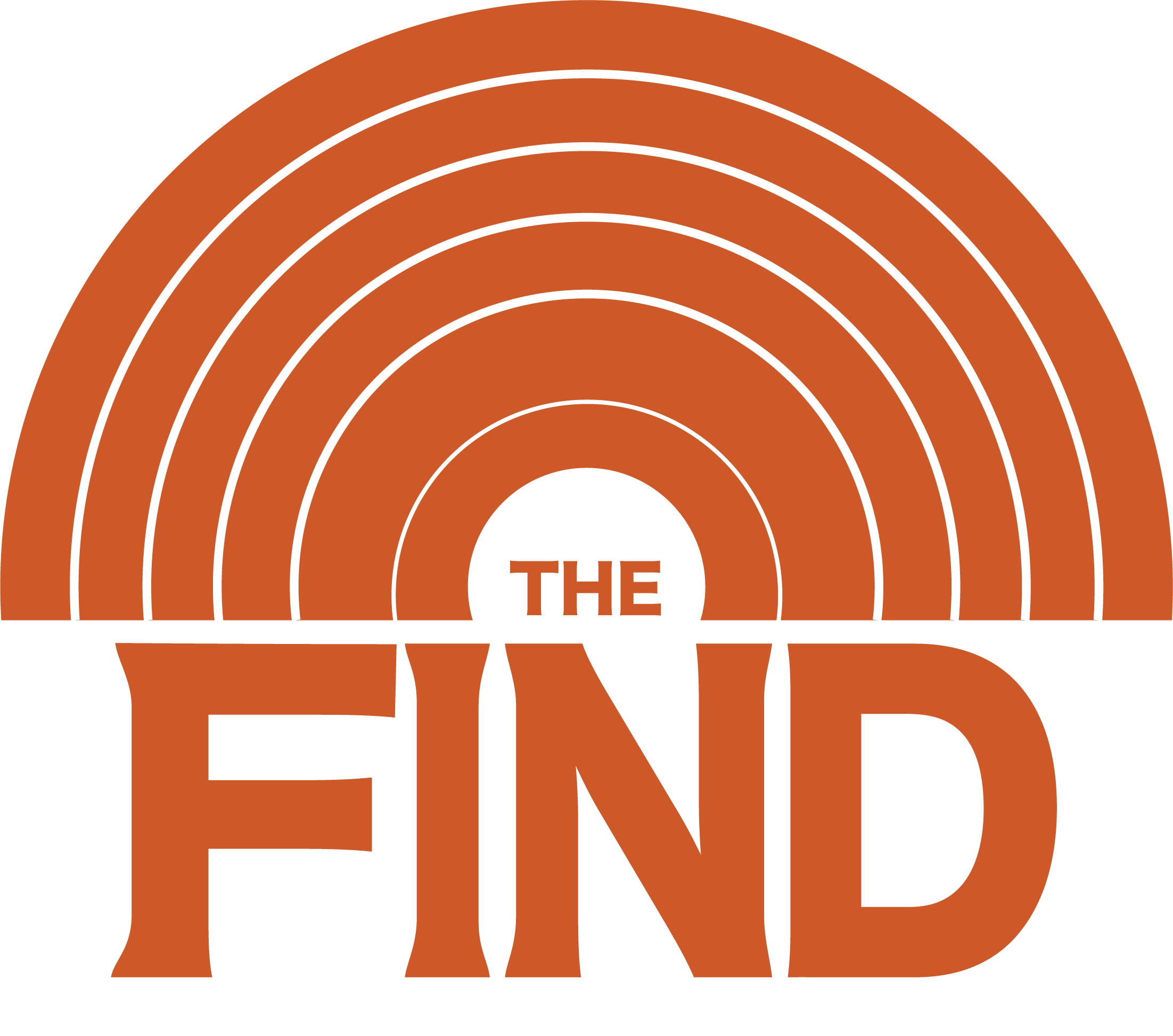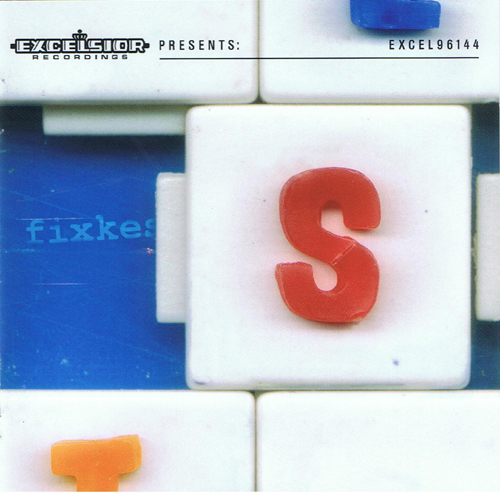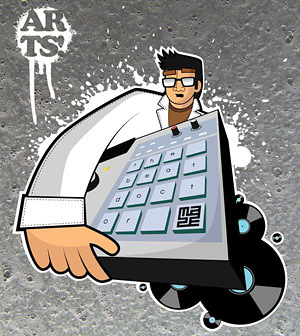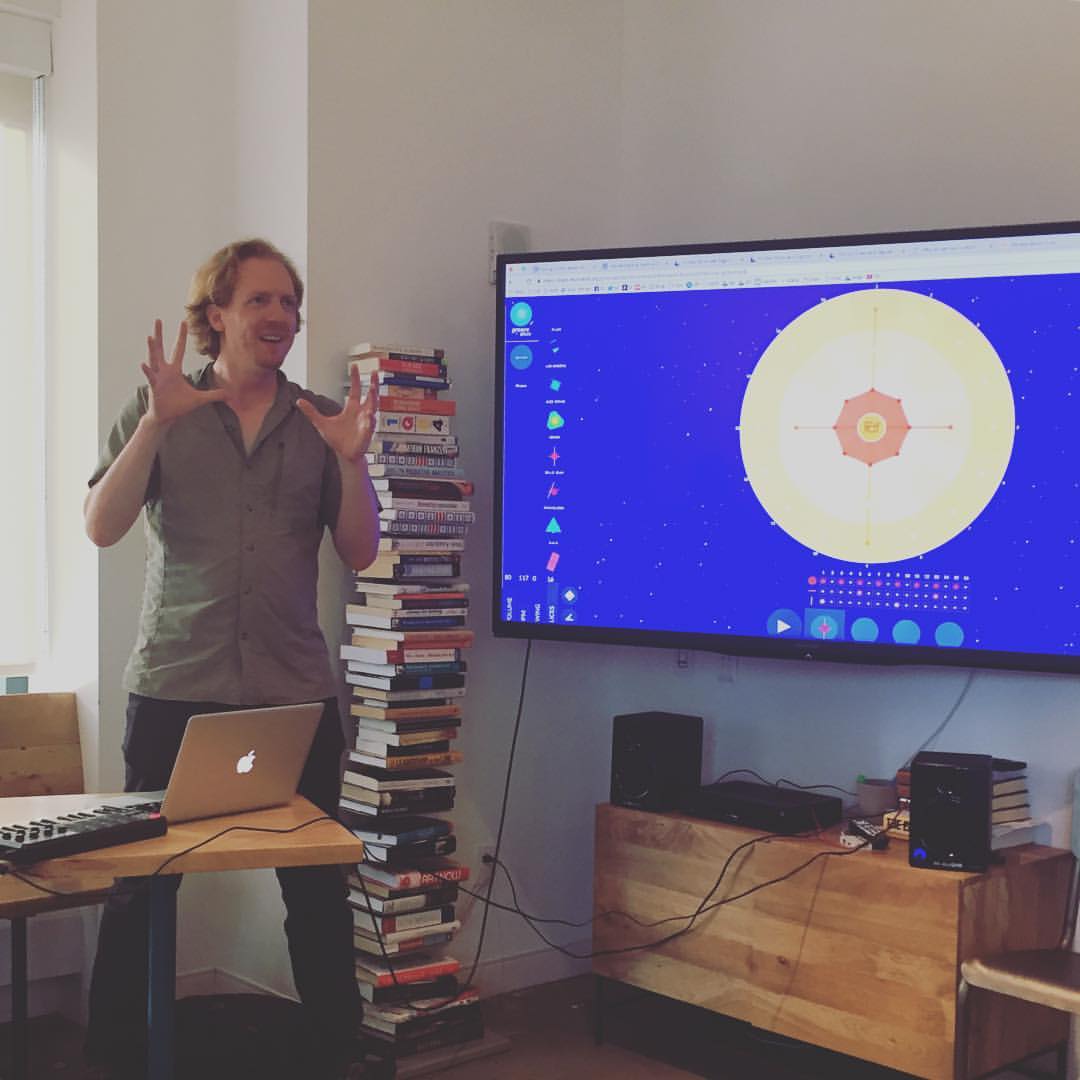Interview: Taylor Whitelow
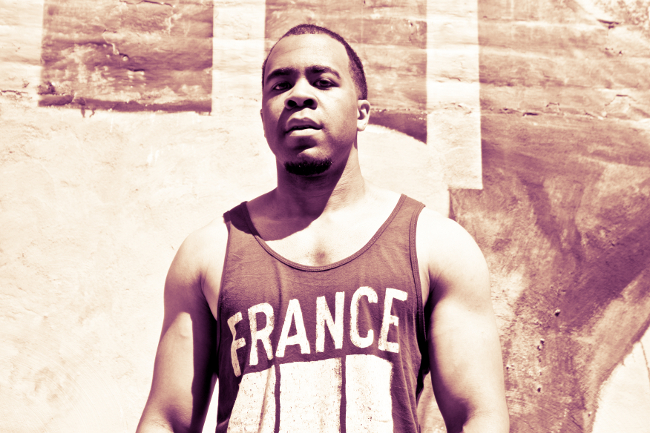
Bursting forth from the confining shackles of modern commercial hip hop, Voir Dire’s Taylor Whitelow releases ArmsRace. The album is his musical manifesto of geo politics, financial upheaval, mental health awareness, as well as a critique of the current state of hip hop.
This is sponsored content through our partner program for artists and labels
Bursting forth from the confining shackles of modern commercial hip hop, Voir Dire’s Taylor Whitelow releases ArmsRace. The album is his musical manifesto of geo politics, financial upheaval, and mental health awareness, as well as a critique of the current state of hip hop.
Through a tumultuous backdrop of snares, kicks, and samples, Whitelow creates music with substance. Audio snippets woven within the fabric of beats elegantly direct the listener’s mind to a deeper significance beyond the driving melodies and rhythms. Themes focused on failing politics and the collapse of monetary systems encourage one to question authority, keep an open mind, and always strive for positive change.
Taking influence from producers like Ohbliv and Oddisee, Whitelow has endeavored to expose his mind, heart, and soul through hip hop.
You seem like a very humble and honest artist. Do you ever feel uncomfortable in the hip hop scene that nowadays seems ego-driven?
I feel as if modern hip hop has turned into (as some say in the US) a dog and pony show. It’s an over-staged, over-glamorized, unrealistic, mockery of an “art”. Hip hop used to be the “CNN” of the urban community. It used to be the voice of the voiceless, the window into the plight of the poor. Now it’s just all about how much money you got or how many women you’re messing with. It’s become almost a minstrel show, sorry to say that but it’s true, just look at Lupe Fiasco’s “Bitch Bad” music video, he and Gil Green (director of Bitch Bad) got it right: hip hop has turned into a minstrel show.
This infiltration of materialism and pettiness I blame on corporations that intentionally commercialize and “dumb down” art (not just hip hop) to create future customers for their products. As one of my professors told me, “A conscious customer is a dangerous customer to a big corporation, because that customer will be more careful about what he or she buys, which hurts the bottom line of corporations.” This dumbing down of the listener has even started to bleed into how people interact with each other when I look at the world on a micro level.
For me, I see this “pettiness” mindset effecting relationships with people and what we value in other people. Nowadays it’s really about how many digits you have in your bank account rather then the score you got on your GMAT. It’s crazy man! Hip hop’s influence used to make people more knowledgeable about things they never would have heard of and now it’s making us less conscious and more petty.
You’re donating 30% of the proceeds raised by your upcoming album to Mental Health America. Out of all charities, why is this particular cause important or close to you?
For me I’ve been very open with people close to me that I’ve struggled with my own mental health since I was 16 years old. I was lucky enough to get my get answers about what was going on in my head and get the help I needed through the mental health services provided by the university I attend, but as I started to gain a clearer picture of myself and the disorders I’m currently fighting I started to notice that mental health in the United States is being ignored. I’ve seen some of my close friends and fellow VCU students have their own mental health struggles yet refuse to get help because of the “stigma” associated with it. My real purpose behind coming out and openly talking about my own struggle with depression and anxiety is to end the “stigma” associated with mental health.
The reluctance to seek help due to the stigma attached to mental health problems remains a significant barrier for many. It’s essential to continue these conversations and explore diverse solutions. Alongside traditional therapies, some individuals have found relief in alternative approaches like cbd vape oil. By openly discussing these options and sharing personal experiences, the hope is to not only remove the stigma surrounding mental health but also promote understanding and acceptance of various methods of coping and healing. Acknowledging the significance of both conventional mental health services and innovative remedies like CBD can pave the way for a more comprehensive and compassionate approach to mental well-being, fostering a society where seeking help is seen as a sign of strength and self-care rather than a mark of shame.
If we can tell people that are hurting right now that it’s OK to get help and you won’t be judged by the world as “being crazy” then I feel that a lot of people can get the help they need and start on the road to recovery and to a better life. As for donating 30% of the proceeds to Mental Health America, my uncle Carlyle “Cotton” Whitelow taught me that doing good for others helps you feel good about yourself. Because of the number of ears and eyes I’ve been able to gain through my art I feel as if I need to use that influence to raise awareness around mental health and to help other people that struggle like me.

In an interview you say “I wouldn’t be here today music-wise if I didn’t have that business background.” How did that help you exactly and how did it shape you to the artist you are today?
Being able to have that experience of running a business and how a big record label works has helped me survive in the music industry which is very bottom line driven. A year or so ago, I was approached by a mid-sized record label to do some in-house production for them. The deal sounded really good with very little restrictions creative wise and low requirements on how many beats I needed to get placed. But the catch was that I need to surrender my publishing rights, which was an absolute NO GO for me.
What is your earliest memory of music?
I grew up around music, I remember listening to Deee Lite and The Fugees with my sister back in the early 90’s, then I heard my two older brothers playing everything from KRS-One to Nas all the way to bands outside of rap like The Dave Matthews Band and Radiohead. But the earliest moment that really sticks in my mind is when September 11, 2001 happened and Jay-Z’s The Blueprint was released on the same day. That album changed my life! That album I believe is one of the best, if not the best, album ever made. The completeness and “soul” of that album is something that I try to emulate every time I make an album or work with someone else. I swear I didn’t take that album out of my CD-player for a year straight. I think I know every lyric Jay-Z spoke on that album by heart.
The release date for your first two singles, September 11th, is a memorable date. Most people clearly remember where they were when they heard the news about the terrorist attacks on 9/11. What are your memories of that day and how did the events influence you as a person?
I remember coming to school and going to my first period class, which was band class. I remember coming into class and there was a TV in the classroom, which was VERY unusual being that we never watched TV or videos in that class before. My band director came in and started class as usually. Then about 30 minutes into the class a teacher ran into our classroom and said “Turn on the TV!” As soon as the TV was turned on, I could see the first World Trade Center building on fire. At first everyone thought it was an accident, but the next thing I knew the principal came over the PA system and announced that our first period class was over and that every student needed to report to their homeroom classroom.
Once I arrived at my homeroom classroom I saw the second plane hit, then I started freaking out! I didn’t know what the hell was going on and why people where flying planes into buildings. About three minutes late the newscaster said a plane hit the Pentagon in Washington DC. At that time, my sister was living in Washington DC going to Howard Law School and lived 4 blocks away from the Pentagon.
I started crying and freaking out thinking that my sister could have been hurt or worse. Then, thankfully, a few minutes later my brother came to my middle school and pulled me out of class for security reasons (where I went to middle school was a couple miles from a military base, the fear was that there was going to be an attack on that military base). The first thing he told me was that my sister was OK and that we needed to leave the school immediately.
I remember running to his car and the first song I heard coming through the speakers was Jay-Z’s “The Rule is Back” off The Blueprint. Little did we both know that that album would be the soundtrack to a day that will live in infamy. It’s crazy to think that looking back on that day, the greatest rap album of all time was released on the same day as the worst terrorist attack in US history.
For me personally, after that I wanted to know why this happened. What would provoke someone to plan and execute an attack like this. I really got into geo-politics after that which was unusually for a kid that was 13 and in the 8th grade. I started to read the newspaper and watch the news more. I started to have a more critical opinion on US politics and the failings of the Bush administration on stopping this attack from occurring ( even at 13 I knew that the higher ups in the Bush administration had a chance to stop the attack but chose not to).
Then on my birthday in 2003, the US invaded Iraq, so a lot of my early life memories happened around geo-political events. My passion for polities and my desire to understanding the world can be heard in my music. On this new album there are a lot of audio quotes talking about things that are political in nature. I feel that people need to pay more attention to what is going on in our political systems, not just in the US, but around the world and to start asking questions on why certain decision are being made and why certain topics aren’t addressed.
“Little did we know that The Blueprint would be the soundtrack to a day that will live in infamy“
People in your close circle say your drive and focus is second to none. Where does this sprout from?
Really it comes from the passion that I have for making music. Music is my life. Music is my way of taking the negative energy associated with depression and anxiety that I cope with on a daily basis and turns it into something positive. I also get a lot of motivation from people that I feel have done harm to me. That’s not to say that I’m the type of person who seeks to get revenge or get back at those people but I do hold on to events that I feel did something negative to my self image or mentality. There are a couple events I recall from time to time to channel motivation from.
For example I remember someone (at a record label) telling me that my music isn’t good enough to even get a look. But I also use personal events like when a close relationship I had with a girl ended with that girl cheating on me, which sent me into some of the darkest days of my life. These events to the outsider seem trivial. But to me, especially the relationship event I just mentioned, have shaped me into the person I am today.
I just take that energy and put that toward the music, almost like I’m trying to silently say “So you think I’m not good enough? Okay, now watch what I do. Your actions didn’t harm me. They just made me stronger.”
You point out the financial crises in Greece and Spain and how it’s not being portrayed in modern-day music and hip hop. But don’t you think that should be the purpose of (popular) music: to ‘escape’ from everyday struggle with an entertaining media form?
No, I don’t think so. I think that using music as an “escape” is just a method used by people to cop-out of an issue instead of facing that issue head on. I think the financial crisis affects everyone of us on earth today. People are making less in salary at their jobs when food and fuel prices continue to rise. Pension funds are being cut just so corporations can make their bottom line fatter. Students come out of college in severe debt because universities and book publishing companies continue to make it more expensive to gain a college education. But the way that music has evolved especially in hip hop, it’s almost like these people don’t even live in the same world as we do. It’s almost like they don’t know someone who has had their house foreclosed on or don’t see the increasing number of homeless people in our streets.
My gripe with hip hop is that hip hop is at its peak in popularity and influence within the world and it’s not using that power for creating change. I guarantee if Jay-Z or Kanye, or Diddy, came out with an album where they only talked about the issues going on in the world, people would be more curious as to why this is happening and how can we make this situation that’s currently happening right now better. We have a saying at Voir Dire (the music label me and my brother own) that goes “If you enlighten the people with knowledge, positive change will come to the world.” The macro level view of the issues going on in the world today is the type of focus I want to see from hip hop.
“We are trying to get back at Jay Electronica through music“
Can you please elaborate on the situation of Jay Electronica using lyrics from your brother?
My brother used to write back when he was attending college at George Mason University in Fairfax, Virgina. He met an A&R [who’s name we can’t disclose because his name is not public domain] and was able to set up several visits with records companies in the New York City area including Def Jam Records. At that time, Roc-A-Fella records was at its peak and he was able to visit Roc-a-fella with this A&R. He was able to met some other A&Rs at Roc-a-fella and Def Jam and they really liked his material, especially a collection of writings called Act II.
So my brother give his book to his A&R associate and told him to sell off the book to the highest bidder if there is any interest. His only condition was that the A&R had to clear it with my brother before the deal could be done. Four years after that, my brother moved back down to Richmond, VA to live with us and go to school at VCU. One afternoon when me and my brother were doing some yard work for our mother I said to him “Man you have to hear this dude Jay Eletronica, he is so real. I really relate to his stuff” So my brother goes inside and starts downloading some of his stuff.
He said the first thing he noticed was that the titles of the songs were eerily similar to the titles from his Act II book. He said the first song he heard was “Extra Extra”, which he said was VERY similar to his original work in Act II. Then he heard a couple more songs and then the straw that broke the camels back was a song called “Girlfriend” which he said confirmed to him that Jay Electronica used his lyrics without his consent. The first thing we did was try to contact the A&R from Mason, he told my brother that “He doesn’t know a Jay Electronica”. Then we tried to contact Jay Electronica’s team, and got no reply. We are currently figuring out what we can do legally and how we can right this wrong.
[For more exact detail on the way Jay Electronica acquired the lyrics please refer to an open letter Taylor’s brother wrote in September 2010]
But in the mean time we are trying to get back at Jay Electronica through music. The Youth is the group comprised of myself and my brother which was formed out of this shameless theft, to prove to people that my brother is truly the writer of Act I, The Style Wars EP, and to show that Jay Electronica will never be able to replicate lyrics as good (creatively) as the ones he stole from my brother.
So how do you feel about the recent claims that Jay Electronica was a ghostwriter for Nas on his Untitled album?
From our standpoint this accusation is totally FALSE. This story was created to deceive and distract the public from the constant album delays and lack of material released from Jay Electronica since my brother released an open letter detailing his side of the story in September 2010. It’s clear to us that Roc Nation, the label that Jay is currently signed to, is constantly figuring out ways to distract and censor people from hearing the real reason why he hasn’t come out with an album.
To the people wondering why it has taken so long, the reason is that Jay Electronica can’t recreate the creative level of lyrics that he used for Act I, which is the standard that most Jay Electronica fans hold Jay to. My brother and I have been banned from commenting on any post on the popular blog site Nah Right due to a comment I posted on that site for the story written on Jay Electronica when he got signed to Roc Nation. We have also been banned from several other hip hop blogs who are associated with the Complex Network. Also I have been banned on the site Rappers I Know which was the first site to release the story about Jay Electronica ghostwriting for Nas – isn’t that a coincidence!!
We have had our e-mail inboxes hacked several times and do not feel secure passing music related material through e-mail anymore. It’s been challenging for us to create music together due to this, but were still creating material. I find it funny that they (Roc Nation) are trying so hard to shut up two kids from Virginia for exposing the truth rather then pressuring an artist they have invested millions of dollars into to make music that can be actually released. We realized the danger of exposing this to the public, but we feel as if this will eventually help move hip hop into a positive direction.
“The problem with most instrumental albums is that producers leave a lot of the beats up for interpretation to the listener“
Can you please tell us more about the concept and meaning of your upcoming album Armsrace?
First of all the term Armsrace means broadly, an ever-escalating race or competition. To me that’s what I feel is constantly going on in my life, like I’m in an everlasting competition against people who want to maintain the status quo in hip hop and politics. The concept behind this album was to create something unique to instrumental albums. There is a visual aspect to this album that hasn’t been explored by artist who create instrumental albums. I wrote two “art films” which were produced and directed by Patrick Rossman and Tom Hart of No Name No Brain Productions out of Richmond, VA.
The goal of those two art films were to give the viewer a good sense of who I am as a person within two minutes. I think for it being the first time writing a storyboard for an art film and having a more hands on approach to a videoshoot, it turned out pretty well. I can’t thank Pat and Tom enough for believing in the project and putting their knowledge and expertise towards something that was admittedly a little different and outside the box.
As for the album itself, it is an instrumental album but I include audio sound clips that give the listener an idea of what I’m trying to convey with that beat. For example, “EuroZone”, which is one of the two singles I released today, has an audio clip talking about the financial crisis in Europe. If the listener didn’t have that audio clip at the end of the song they wouldn’t really know what I’m trying to say with that beat.
The problem with most instrumental albums is that producers leave a lot of the beats on their albums up for interpretation to the listener. I feel like my message is so important that I have to lead my listener into what I want them to take away from the album. I consider this my first “big budget” album and I want to set a precedent with this one. I want this album to be the “manifesto” to my career and the new model of hip hop I’m trying to introduce to the world.
The amount of free releases is huge in this day and age. How does your music stand out compared to everything else; what do you bring to the table?
This album is using what I call the “Radiohead model”, which is you can download the album for whatever you feel is the real worth of the album. So if you feel like it’s worth $1 you pay $1 if you feel like it’s worth the full price (which is $10) then you pay the full price for it. I like to give the customer the power to choose what they feel is the worth of the album.
Secondly, there is a higher clause to the album other then making money. With donating 30% of the proceeds from this album to Mental Health America, the customer feels like they aren’t just lining my pockets, but actually contributing towards a cause that is a righteous one.
Lastly, this will be something that will set a precedent for future instrumental and hip hop albums over the next 10 years. I’ve spent almost 5 years developing this idea and finally I’ve been able to acquire the capital and talent needed to release stage 1 of this concept. This isn’t the be all and end all to this concept, but rather just the beginning to a concept that I feel will change the landscape of hip hop and music itself.
—
More // Voir Dire (Facebook) // Twitter // Facebook
This is sponsored content through our partner program for artists and labels. However, all sponsored content is completely unbiased, honest, and transparant. Please feel free to contact promo[@]thefindmag.com for questions or concerns.
